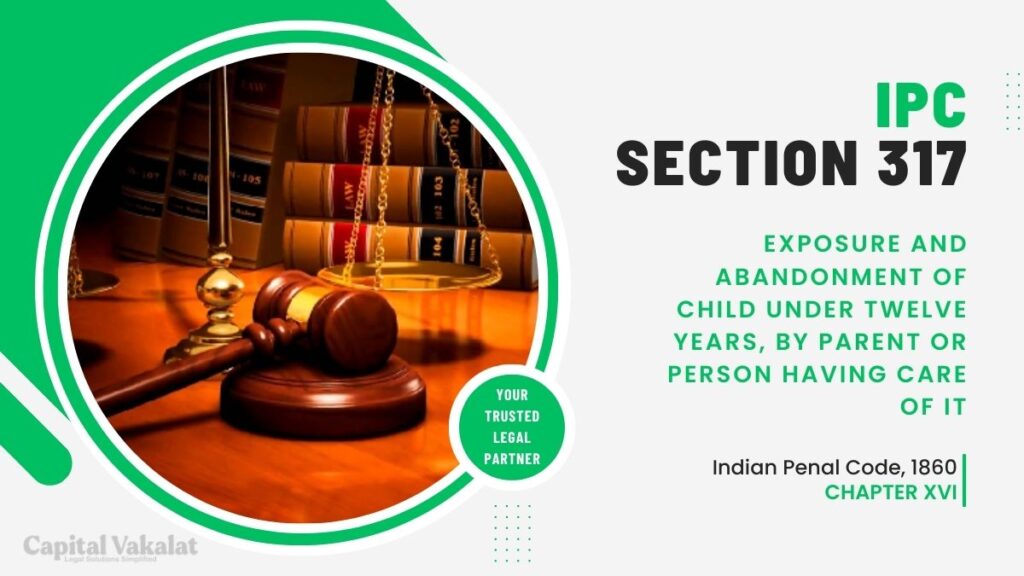Children are the most vulnerable members of society, relying on adults for care, protection, and nurturing. Unfortunately, there are instances where parents or caregivers fail to fulfill their responsibilities, leading to the exposure and abandonment of children under twelve years. In this article, we delve into Section 317 of the Indian Penal Code (IPC), which specifically addresses this issue.

We will explore the legal provisions, consequences for offenders, challenges faced by abandoned children, preventive measures, and the role of society in ensuring the well-being of these youngsters.
Introduction
Section 317 of the IPC is a critical legal provision aimed at safeguarding the rights and well-being of children under twelve years old. This section addresses situations where a parent or a person having care of a child exposes or abandons the child in a manner likely to cause suffering or injury to the child’s health. The significance of this legal framework lies in its commitment to protecting the most vulnerable members of society.
Understanding Section 317 IPC
Legal Provisions
Section 317 outlines the legal consequences for those who expose or abandon children. It is essential to comprehend the nuances of this section to understand the gravity of the offense.
Definition of Exposure and Abandonment
The section defines exposure and abandonment, highlighting scenarios that qualify as offenses under the law. Exposure refers to leaving a child in a situation where they are susceptible to harm, while abandonment involves a willful act of forsaking parental responsibilities.
Age Specification
The section specifically pertains to children under twelve years, recognizing the heightened vulnerability of younger children who depend entirely on others for their well-being.
Parental Responsibilities
Parental responsibilities extend beyond providing food and shelter. Parents and caregivers are entrusted with the duty to create a safe and nurturing environment for their children. Section 317 reinforces the importance of fulfilling these responsibilities.
Conclusion
In conclusion, Section 317 IPC plays a crucial role in safeguarding the well-being of children under twelve years. It places the responsibility squarely on parents and caregivers to ensure the safety and security of their young ones. By understanding the legal provisions, consequences, and the broader societal impact, we can collectively work towards creating an environment where no child is exposed or abandoned.
Frequently Asked Questions
What are the potential punishments for violating Section 317 IPC?
The penalties can vary, including imprisonment and fines, depending on the severity of the offense.
Are there support services available for abandoned children?
Yes, various child protection laws and organizations provide legal support and guardianship for abandoned children.
How can communities contribute to preventing child exposure and abandonment?
Communities can raise awareness, offer support to struggling families, and report suspicious situations to authorities.
What long-term impact can exposure and abandonment have on a child’s life?
The consequences can be severe, affecting the child’s physical and mental well-being, and may lead to societal stigmatization.